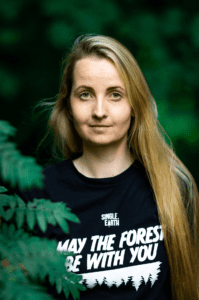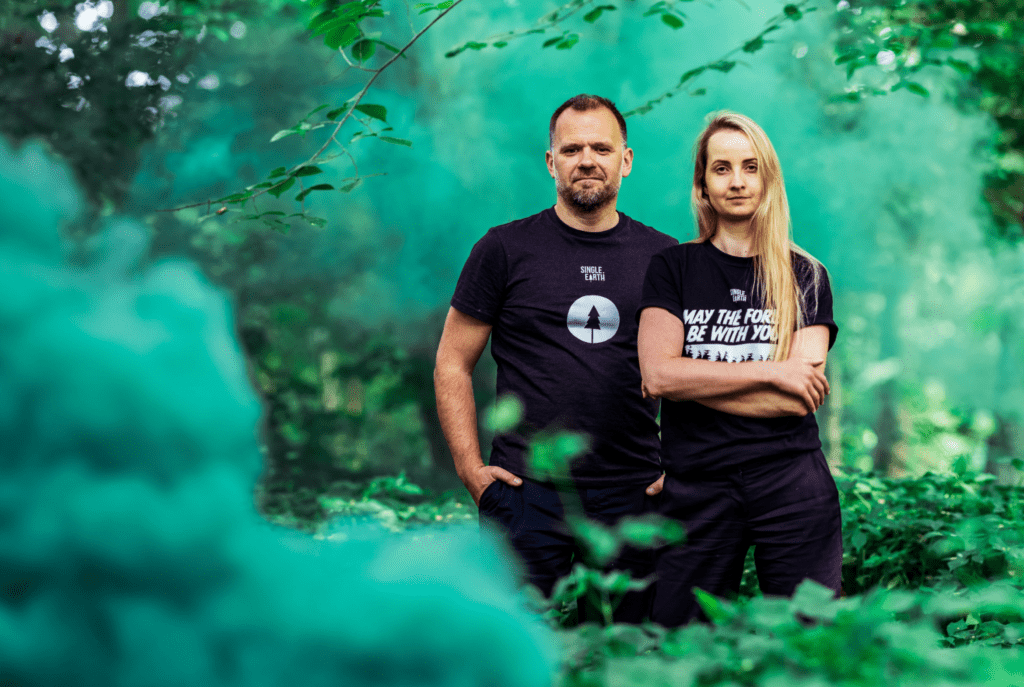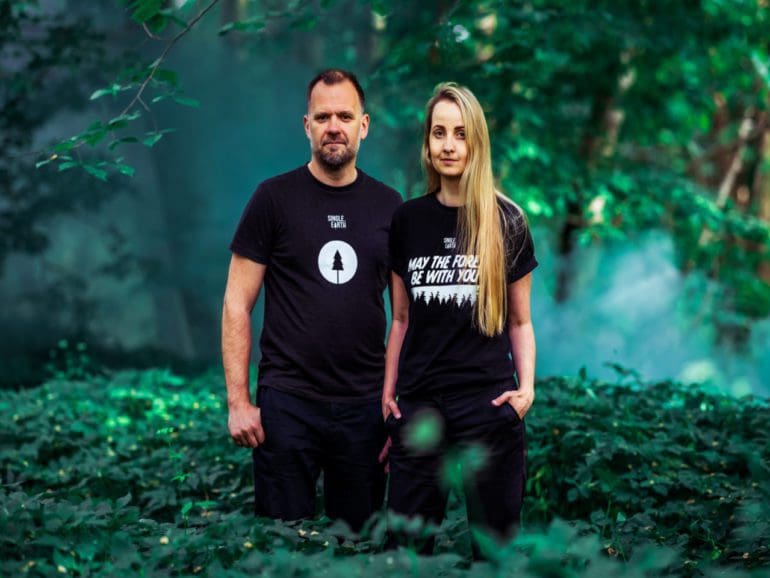Single.Earth, an EQT-backed startup tokenizing nature, selected LHV UK as its banking partner so it can access real-time payments in EUR and other banking services.
Merit Valdsalu, CEO and co-founder of Single.Earth said: “As a rapidly moving startup, we’re happy to partner with innovation embracing banks like LHV UK. We’re excited to continue exploring new ways how we can work together to protect the natural world around us.”
Andres Kitter, Deputy CEO of LHV UK, said: “Single.Earth is a pioneering fintech company aiming to make nature protection profitable for small landowners. We’re thrilled to be working with them and provide full support for their banking services so they can focus on their fight against climate change and biodiversity loss.”
The mission of Single.Earth is to improve the shortcomings of the carbon credit industry of today. It advocates rapidly slowing down global deforestation, highlighting how current net-zero policies harm biodiversity as part of its solution, Single.Earth promotes the trade of carbon removal and biodiversity. Landowners receive a tradable MERIT token for each 100kg CO2 captured by forests, wetlands, or other natural resources.
In recent years, there has been an increasing number of tree planting projects for carbon offset and similar goals.
But according to Single.Earth, there haven’t been any solutions for those that already have a mature forest.
For many landowners, Single.Earth could solve a massive problem as many don’t necessarily want to cut their forests down but do some to have a reasonable return on their investment. Single.Earth is providing an alternative investment; if they can earn this through nature protection, they can keep their forests growing.
Related:
Single.Earth use case
When CEO Merit Valdsalu noticed a problem in Estonia three years ago, she founded the company. “When we started building Single.Earth almost three years ago, we started from a very local problem: we have a lot of beautiful old forests in my home country Estonia, but in recent years we’ve seen more and more of these forests being cut down. So we started looking for ways how we could make it stop.”
As they dug deeper into the problem, they understood that the business model is driving this destruction of forests—consequently, Single.Earth believes nature is only monetized as raw material, meaning that we only pay the forest owner for cutting down the trees for timber.
They quickly realized that the issue they recognized is not an Estonian problem, but global and not just forests, but all kinds of land use worldwide that is super intensive because nature is only monetized for raw materials.

Valdsalu is taking a new approach to how we can change the relationship between investments and sustainability.
“There’s so much more that nature provides us with that is perhaps even more valuable than that – the vital ecosystem services that make this planet habitable for us – the air we breathe, the water we drink, the food we eat. Or sequestering carbon dioxide from the atmosphere or holding biodiversity. We use all of these ecosystem services every day, but we have never paid for any of them – on the contrary, so far, we have only been paying for destroying them.”
Speaking to Carbon Pay, a fintech and payment card helping businesses and individuals offset their carbon footprint through this model. Their viewpoint focuses on the commodification of the planet.
“While Single. Earth’s vision is designed to be accessible to everyone. It seems to reprioritize the moral obligation to take responsibility for our impact. Protecting not only the planet but ourselves and our future generations is a big enough reason to take action. I worry that the true goal of preserving and restoring our home will get lost if we supersede profit over the planet. With this framework, Single.Earth commodifying climate change incentivizes those less-inclined to decarbonize on their own, to take on climate action with their new form of economic encouragement.”
Landowners and the ecosystem
Following Single.Earth’s creation, landowners, were paid for maintaining these ecosystem services on this planet by preserving their natural resources.
To do that, they had to start by quantifying these ecosystem services. For that, they built a digital twin of the world’s nature that describes what nature does and what ecosystem services forests and other natural resources are providing us with right now.
They use satellite data, extensive data analysis, and machine learning to build global carbon, biodiversity, and other ecosystem services models that show what nature does in the physical world and bring that to the digital world.
“This digital twin is a critical part of what we do because it serves as an oracle for minting tokens for us,” Valdsalu explains.
So, for example, for every 100 kg of CO2 sequestered in a biodiverse forest, they emit one MERIT token to the landowner. And they continue receiving these tokens for as long as they keep their natural resources intact. In return, landowners can sell the tokens to businesses and individuals and earn euros or dollars. That’s how they create a real-time incentive for landowners to preserve their forests and other natural resources.
Future of Wood Hackathon
In late 2019 friends, Ragnar Sass (who later became one of our first investors) connected Valdsalu with his later co-founder Andrus Aaslaid ahead of the ‘Future of Wood’ hackathon in Tallinn; this was the start of Single. Earth.
“Surprising many people, we won the hackathon with the project, which essentially said the trees’ future is in the forest. At its core, Single.Earth, when it launches in 2022, is pretty much as we envisioned during that first hackathon,” Valdsalu explains.
Since then, Single.Earth has undergone a few incubation programs before raising capital from Icebreaker.VC and EQT Ventures.
Onboarding landowners
For landowners, onboarding means claiming their land plots on the Single.Earth platform and verifying their ownership. The system immediately tells them how much CO2 their forest removes from the atmosphere.
For the buyers, they implemented the same principle: the platform has to be accessible to all people. Even though they use tokens and operate in the Web3 space, they don’t assume that the buyers are crypto-natives.
On the contrary, Valdsalu explains that buying MERITs on the platform might be the easiest way to get a hold of tokens when someone has never bought any.
“One of the main principles we decided early on is that the platform has to be easily accessible for landowners of different sizes worldwide. That’s why we built the Digital Twin of the world’s nature to be able to automatically assess nature’s ecological value, ” Valdsalu explains.
However, as a licensed virtual asset service provider, the onboarding process for token buyers is similar to any other financial institution with Know Your Customer (KYC) and Anti-Money Laundering (AML) procedures.
Valdsalu explains that users have reacted positively. “Everybody loves the concept and wants to see the big vision of nature-backed currency come to life. At the same time, they understand that it’s a long-term vision, and it will take a lot of work and a few miracles to make it happen.”
In exchange for not cutting down their forests, the first landowners have received cash – and forest managers and, according to Single.Earth early users are so impressed with the service that they want to purchase more forests to upload to Single.Earth.
“We have received much positive feedback from the landowners, especially as there has been a huge gap in the market for business models for nature conservation.”

The MERIT token
Long-term, Single.Earth would like to be like the Euro, dollar, or any other currency, the only difference being that it’s not issued from the printing press. In theory, everything consumers can do with money today will also be able to do with MERIT. The goal is to roll MERIT out as an actual currency that can be used to pay within your daily transactions.
Their new currency “is backed by the work nature does. If you think of cryptocurrencies and coins, these are usually minted based on mathematical algorithms. The algorithms that we use for minting the MERIT tokens are the ones that occur in nature – the work that nature does in real-time, like CO2 absorption,” Valdsalu explains.
“By buying a token, you finance nature protection as the tokens always come from landowners. We mint the tokens to the landowners, and people and businesses can buy them from landowners.”
The USP here is that switching to MERITs is that the amount of MERITs in circulation is always limited to how much nature can sustain. By that, they can restrict the economy to how much nature can maintain and build a genuinely sustainable nature-based economy.
Nature-based economy
The company hopes to see a real breakthrough in crypto payments. Valdsalu takes an optimistic viewpoint, “when crypto payments become mainstream, we will have the chance to move to the Single. Earth’s vision of building a nature-based economy. Until the payment solutions aren’t there, we will still be able to use the tokens as a way to assign value to nature and finance nature protection – but I am, of course, most excited to see the big vision of MERIT becoming a global nature-backed currency coming to life.”
Technology, investment, and climate
Valdsalu’s concluding remarks give an interesting insight into the relationship between climate, investments, and technology. “Looking at the big picture, over the last couple of years, we have seen capital flowing into climate tech investments like never before, but before these could have a meaningful impact on climate, it will take years. At the same time, climate change around us shows no signs of slowing down, quite the contrary. Technology will surely play an increasing role in the climate change debate, partly through carbon capture technologies and tools like Single.Earth which turns the everyday life of consumers greener.”
Single.Earth’s future
After they raised a $7.9 million seed round last year, they grew their team tenfold in six months, growing from 8 people to 80.
Looking five years ahead, it will be 2027, meaning plant earth is only three years away from the first significant global climate and biodiversity goals of 2030. Global citizens are witnessing the acceleration of climate change with our eyes, and so Single.Earth emphasizes the urgency their this solution.
Single.Earth is launching in September. Go to https://single.earth to join. They are testing the service with beta testers.


